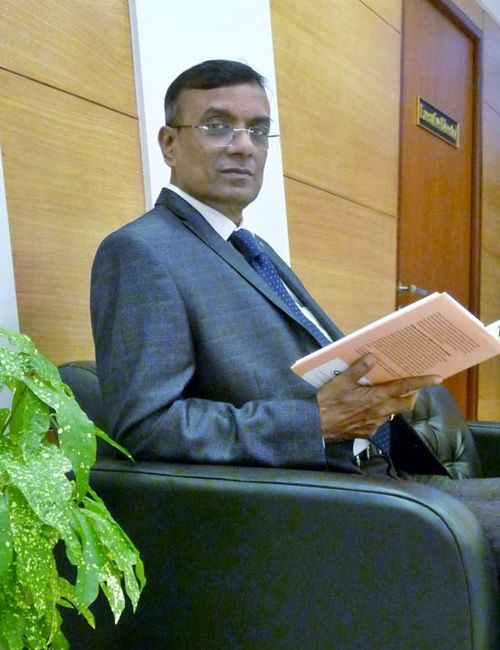At the lowest strata of Bandhan’s MFI operations are credit officers, who don’t require much formal education, except a class 12 certificate.

When Bandhan, India’s largest microfinance firm, graduates to be a bank on August 23, Sankari Saha might deposit Rs 10.
While Ashoka Mitra plans to begin with Rs 1,000, Keya Chakraborty, running a wholesale medicine business for the past five years or so -- she is one of the richest in the group -- might deposit as much as Rs 5,000 at first.
Even with no advertisement campaign rolled out as yet, Bandhan needs little introduction about its banking foray from Hridaypur, a semi-urban locality in North 24 Parganas district of West Bengal.
At Deya, a group of Bandhan’s 34 women borrowers -- a few already have bank accounts -- are all set to bank with Bandhan from next month.
There are several perks for banking with the newest bank in India.
Even with a deposit of Rs 5, Saha will get an automatic teller machine card with her name on it.
Besides, it is expected (yet to be finalised) that members of MFI groups could do banking transactions of up to Rs 5,000 -- withdrawal and deposit -- at the field level through handheld devices.
That means, the MFI account holders will get all facilities provided to standard savings account holders in the retail banking division, apart from doorstep banking facility.
“Instead of paying Rs 10 for going to a bank, we will deposit it in Bandhan. And, we won’t have to wait in queue.
"All facilities will be provided at our doorstep, and we trust Bandhan a lot. So, there is no reason to not open a bank account here,” says Nilishima Ray, a member of Deya.
The integration
The integration of Bandhan’s microfinance business, worth nearly Rs 10,000 crore (Rs 100 billion), into formal banking, is being meticulously planned and executed in a layered hierarchy of a hub-and-spoke model.
At the lowest strata of Bandhan’s MFI operations are credit officers, who don’t require much formal education, except a class 12 certificate.
However, their experience can push them up the ladder — even to the extent of leading a big branch.
Each credit officer commands nearly 25 groups of women borrowers, and attends four to five group meetings every day for weekly collections.
The credit officers report to a branch manager, who is responsible for managing about five credit officers, or nearly 125 groups.
Branch managers operate in small apartments, which serve as their office-cum-home, with minimal furniture and the facility of a cook for resident field workers.
Bandhan operates 2,022 such small branches across India.
About six branch managers report to the regional manager.
A regional manager reports to the divisional head, who is in charge of about eight regional managers and responsible for a portfolio of nearly Rs 300 crore (Rs 3 billion).
The divisional head reports to one of the four zonal heads in Kolkata.
When Bandhan becomes a bank, the small resident-cum-office branches under a branch manager will turn into spokes, connected to a hub (led by divisional or cluster heads).
The divisional or cluster heads will sit at one of the 600 new bank branches of Bandhan.
Each cluster head will have two bank managers, one for the MFI division and another for the general banking division, thus integrating microfinance with retail banking.
While the fine print of functioning of the hub-and-spoke model is yet to be finalised, it is expected a person will be able to do banking transactions of up to Rs 50,000 in small branches.
Bandhan’s success as an MFI
Asking for a glass of water is part of the verification process, and so is asking the client to switch on the light.
To attain a recovery rate of 99.97 per cent, such interpersonal interaction skills are imperative for credit officers at Bandhan.
“For us, meeting the borrower every month is important. So, we do not give loans to women who do not live in the locality where a borrowers’ group is formed.
"We follow a unique verification process. When we go for verification, if it is truly a woman’s own house, she will do the household chores, like getting water or switching on the lights, very smoothly,” says Soumyajit Dutta, assistant manager (operations), Bandhan.
Unlike any MFI or bank, the field workers at Bandhan are not assigned any target or perks for achieving one.
Instead, the managers are asked to set their own target, depending on the socio-geographic demography of the region.
Most importantly, the staffers are expected to have a humane bonding with their customers.
“If we get to know that a person in the group is unwell, we are advised to go and visit them, ask if they need any help.
"If need be, we generously consider postponing a weekly instalment.
"Human connect is the most important part of our functioning,” says Dutta.
Soummyajit recalls Bandhan’s foray in Gujarat around 2009, when Bandhan was to compete with scores of established MFIs driven by agents.
“Initially, we faced a lot of opposition from agents, who took commission from both borrowers and MFIs forming groups.
"For us, a direct communication with the borrower was key to our functioning.
"We carried out an extensive door-to-door campaign for forming groups, and established direct contact with borrowers.
"Gradually, the agents were shunned by customers themselves,” recalls Dutta.
Image: Chandra Shekhar Ghosh, Founder, Bandhan Financial Services. Photograph: Kind Courtesy, Bandhan











